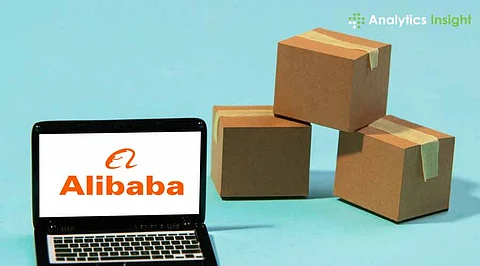

Artificial intelligence is revolutionizing industries, and B2B wholesale is at the forefront. Retailing titans such as Amazon Business and Alibaba use AI to reshape how businesses purchase goods, supply chains, and grow operations. Their innovations make processes simpler, cheaper and create new opportunities in previously slow, resource-intensive markets. Here are five ways the giants are using AI to revolutionize B2B wholesale, a peek at the future of business commerce ahead.
AI helps Amazon Business and Alibaba forecast what people will need even before they place an order. Predictive analytics weaves through reams of information, previous purchases, market trends, and seasonal shifts, to predict what buyers will demand.
Amazon Business employs it to recommend restocking inventory for small businesses, and Alibaba's algorithms tell suppliers on its platform to stock top-selling products. Accuracy in these projections cuts overstock waste in half and gets products to buyers sooner. Companies gain from an infrastructure that anticipates, replacing guesswork with accuracy and accelerating the flow of operations.
Manual tasks once bogged down wholesale transactions, think invoice matching or order tracking. AI automation can do all of these tasks competently today. Amazon Business automates payment and error detection by using robots to let workers perform higher-value work. Alibaba's Cainiao network driven by AI permits its operation to be more optimized in how it picks and transports products faster from the warehouse.
It translates to faster processes, fewer errors, and less spending. Companies integrated into these platforms enjoy an effective and timely supply chain where human efforts become redirected away from mundane tasks to speeding up growth.
Mass customization is an oxymoron, yet with AI, it is finally achievable in B2B wholesale. Amazon Business tailors product recommendations to the purchase history of a company and the needs of its industry; i.e., office machinery to a startup company or factory machinery to a factory.
Alibaba's Accio search engine, alternatively, uses natural language processing to match buyers to sellers among thousands of product categories, narrowing its focus with every search. Personalization is a time-saver in searching and delivers relevance, and companies end up with what suits their needs. Wholesale turns into a made-to-order transaction.
Dynamic pricing, which was once a retail gimmick, now flourishes in B2B with AI. Amazon Business fluctuates prices according to demand, competition, and buyer behaviour, discounting to close bulk sales. Alibaba's algorithms study global trade data to determine competitive prices for suppliers, balancing profit and attractiveness.
Both sites keep prices fluid but fair, adjusting to the market fluctuations that people cannot keep pace with. Buyers receive improved values, sellers stay in business, and the wholesale system continues to flow with new energy. AI translates numbers into success opportunities.
Disruptions: think port delays or raw material shortages, once crippled wholesale chains. AI hands Amazon Business and Alibaba tools to dodge those blows. Real-time tracking, fueled by machine learning, spots bottlenecks early.
Amazon’s logistics arm flags shipping hiccups and reroutes goods, while Alibaba’s AI maps out backup suppliers during crises. Resilience grows as data flows fast, letting firms pivot before trouble hits. This shift from reactive to proactive keeps B2B trade rolling, even when the world stumbles.
Amazon Business and Alibaba use AI as a cornerstone of B2B wholesale transformation. Predictive sourcing maximizes inventory calls, automation removes fat from operations, and personalization builds a buyer-centric marketplace. Pricing adapts to market sentiments, and supply chains fortify against turbulence. Together, these transformations rip up the old playbook: slow negotiations, inflexible systems, blind spots, and create a dynamic, data-driven model.
Small firms have access to machinery previously the exclusive province of corporate behemoths, and vendors access more markets with less resistance. Competition rises, productivity explodes, and the world of wholesale shifts toward a universe in which machines lead the way. As 2025 progresses, these platforms herald an even larger truth: business-to-business commerce prospers most when minds and machines converge.
